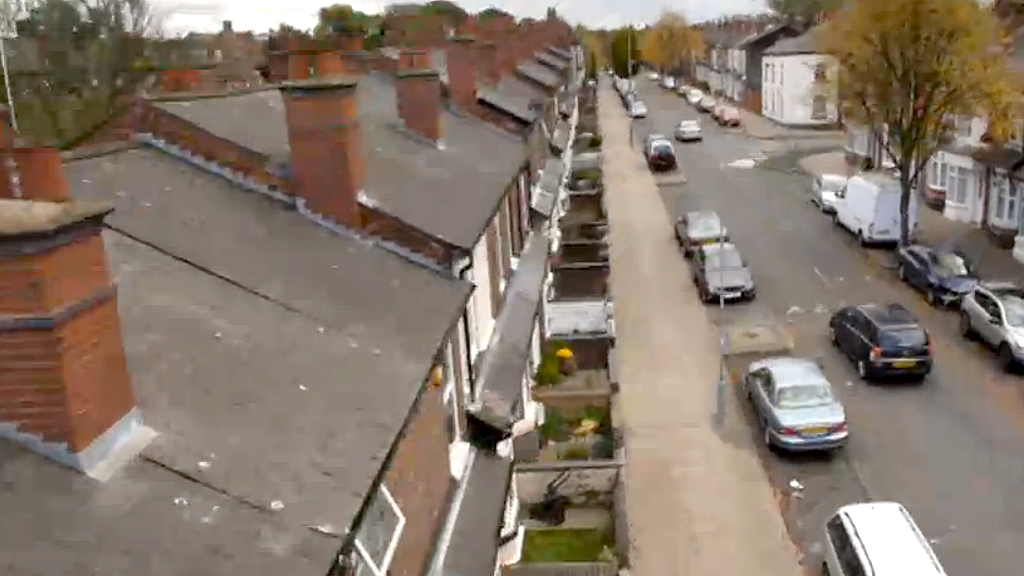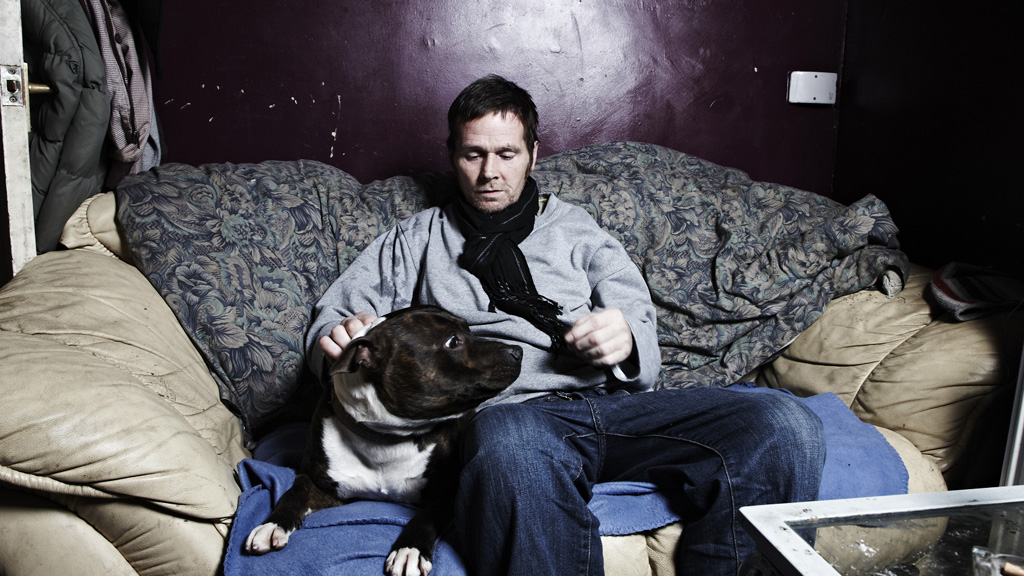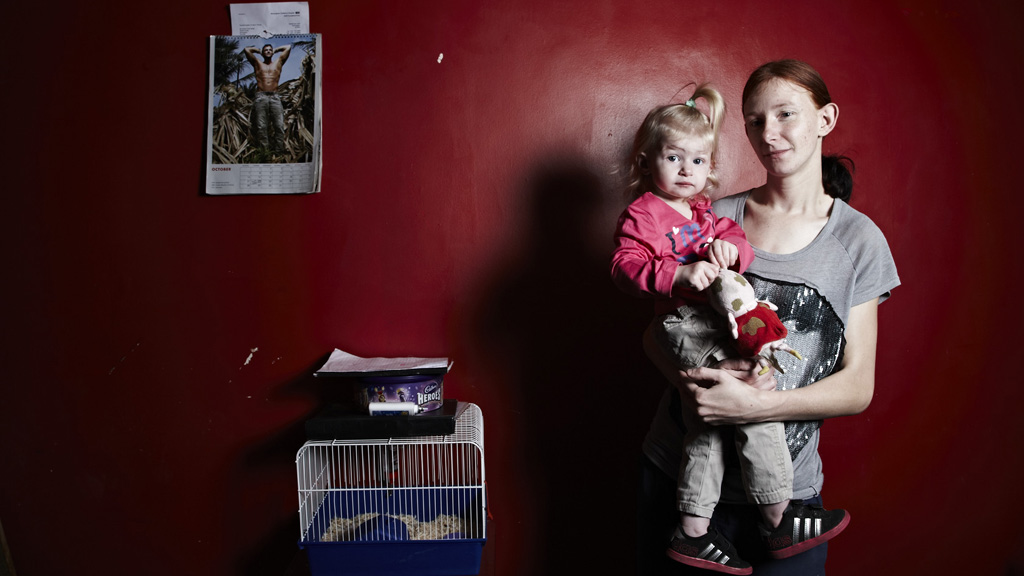Five things Benefits Street tells us about being human
With Channel 4’s Benefits Street debate shining a spotlight on the issues raised by the programme, we explain why the series has made such powerful TV viewing.

1. Human interest stories make compulsive TV
Channel 4 has enjoyed some of its best-ever viewing figures for Benefits Street.
But that is not just because of the political controversies the series has provoked. It is because the personalities involved inspire a mix of admiration, fascination and scorn.
Take Deirdre Kelly (“White Dee”), the street matriarch who presides over the goings-on in Birmingham’s James Turner Street. A single mother, her role appears to be to keep other residents – such as Fungi – on what might be loosely termed the straight and narrow.
Watch: Benefits Britain - The Live Debate
Like Fungi, who is a drug-taking alcoholic father of three, White Dee represents a host of contradictions. She reprimands her daughter for swearing, for example, yet swears regularly herself. She is the street’s dominant personality, yet she is on antidepressants.
And she appears to operate according to some sort of moral framework while tolerating her neighbours’ apparently antisocial behaviour.
It is because White Dee and the others are inconsistent and unpredictable, and therefore typical of all of us, that they make such interesting viewing.
2. Characters appear to have been chosen to enrage Middle England
With the possible exception of White Dee, most of the regular personalities in Benefits Street are distinguished by their chaotic lives and an apparent inability to improve their lot.
Fungi, who is treated almost as a pet by White Dee, has lost his children, is a drug user and is regularly under the influence of drink. Mark and Becky, neither of whom has held down a regular job, both struggle to raise their young children.

“Black Dee” – real name Samora Roberts – has been charged with drugs offences, together with five other residents of James Turner Street and one other person, following police raids on the street in the wake of the programme.
Only White Dee, who is at the centre of the series, emerges as someone with any depth or complexity. It is hard, though, to see how the programme makers could not have focused on the apparently determining aspects of the other characters’ lives.
3. Like all great TV, you can get different things from Benefits Street
Criticism and praise have been heaped on Benefits Street since the first episode’s appearance in early January. Critics have said that the programme –
- shows people breaking the law
- dignifies lifestyles that do not involve paid work
- holds up to ridicule people who do not have the resources to lead a conventional life
- offers up the spectacle of poverty for entertainment
- exploits people who do not properly realise what they have let themselves in for
By contrast, Benefits Street has been praised because it –
- shines a light on, and gives a voice to, a section of society of which many were ignorant
- humanises an underclass that is almost always vilified in public discourse
- draws attention to the problems of poverty, depression, drug taking, and the difficulties faced by people trying to improve their lot
- highlights the negative aspects of some of the government’s recent benefits changes
A good case can be made for all of these points. To this extent Benefits Street is a powerful illustration of many of the issues thrown up by debates over the role of the welfare state during a time of economic hardship.
4. People can lead dysfunctional lives and still belong to a community
The word “community” does not just mean a group of people living in the same place. It also means people who share attitudes and interests.
In James Turner Street, the community is linked by the fact that most of them are unemployed. As the voiceover says during the opening sequence: “There are 99 houses, 13 nationalities, and most of the residents are claiming benefits.”
White Dee puts it more succinctly: “Probably 5 per cent of people on this street are working.”
Probably 5 per cent of people on this street are working. White Dee, Benefits Street
But community also implies a degree of mutual help, and there are several examples of this during the five episodes of Benefits Street.
White Dee is seen regularly to adopt a maternal and guiding attitude towards Fungi and his chaotic life.
In episode two, a succession of Romanians move into one of the houses on the street. Not only do they not claim benefits, but they derive the strength to live through hard times by their own bonds of community – although they are clearly not welcomed by most of the established residents.
In the same programme, a local known only as Sue enters the street in the Britain in Bloom competition. Although her venture is ultimately unsuccessful, one of the residents, Hyacinth, is prompted to deck her front garden in hanging baskets.

5. People on Benefits Street face the same challenges as all of us
Work, regular food, a roof over our head, friendship and, if we are lucky, love – these are basics that many of us take for granted.
And it is no different on James Turner Street. Fungi may be a drug-addled drinker, but in episode four we witness his excitement when he is told when he is told he can meet his adopted youngest son for an hour (he has fathered three children). His son’s adoptive parents then cancel the meeting.
Similarly, heroin addict Sam is devastated when her paternal grandmother, who has care of her son, hangs up on her as she tries to make conversation about how her child is getting on.
Episode three focuses on the lives of Mark and Becky, a young couple who met up at school and who now, five years on, have two young children. They profess continued love for each other, yet their relationship is clearly turbulent – Mark says their love is like a flower whose petals are falling off.
At one point, Mark – who has never worked full-time – gets work going from door to door for a charity. Heartbreakingly, he earns absolutely nothing from this commission-based job.
-
Latest news
-
Boy with profound learning disabilities reaches out of court settlement after abuse in residential school7m

-
India election: Modi rivals hit by string of raids and arrests7m

-
Can UK’s abandoned mines be used to build a greener future?5m

-
Sycamore Gap: Man pleads not guilty to felling iconic tree2m

-
‘Child poverty has not fallen since Tories came in’, says Gordon Brown5m

-




